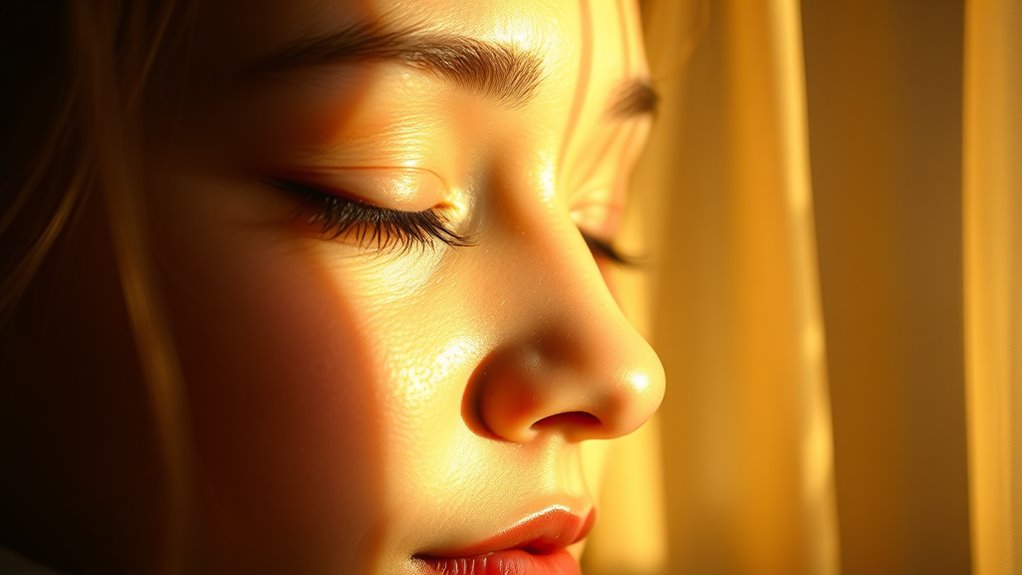The Skin Benefit You’re Missing When You Don’t Sleep Enough
When you don’t sleep enough, your skin misses out on vital restorative benefits. Lack of sleep leads to dullness, dark circles, and increased inflammation, making you look tired and aged. Without adequate rest, collagen production diminishes, affecting skin elasticity. Moreover, sleep enhances hydration and moisture retention, leaving your skin appearing vibrant and fresh. Prioritizing quality sleep is crucial for maintaining your skin’s health and glow. Discover how to improve your sleep quality for optimal skin rejuvenation.
Understanding the Connection Between Sleep and Skin Health
While you may not often think about it, the quality of your sleep plays a crucial role in your skin’s health.
When you sleep, your body repairs itself, and your skin cells regenerate, leading to a fresh and youthful glow.
Insufficient sleep can result in dullness and premature aging, highlighting the importance of quality rest for achieving vibrant, healthy skin.
The Role of Sleep in Tissue Repair and Regeneration
Sleep isn’t just a time for rest; it’s a vital period for your body to engage in tissue repair and regeneration.
During sleep, your body focuses on:
-
Cellular Repair: Damaged cells undergo recovery to maintain skin health.
-
Collagen Production: Enhanced collagen synthesis supports skin elasticity.
-
Inflammation Reduction: Sleep helps decrease inflammation, facilitating quicker healing.
Prioritizing sleep is crucial to optimize these restorative processes.
How Sleep Deprivation Affects Skin Appearance
When you don’t get enough sleep, it’s more than just feeling tired; your skin reflects the lack of rest almost immediately.
You might notice dark circles, puffiness, and an overall dull complexion. Sleep deprivation can lead to increased inflammation, causing redness and breakouts.
Additionally, fine lines and wrinkles may appear more pronounced, robbing your skin of its youthful vibrancy and smoothness.
The Impact of Sleep on Skin Hydration
Getting enough quality rest is essential for maintaining your skin’s hydration levels. When you sleep, your body repairs itself, enhancing moisture retention. Lack of sleep can lead to dehydration and dryness.
Here are three ways sleep impacts your skin’s hydration:
- Boosts natural oil production.
- Enhances moisture absorption.
- Reduces transepidermal water loss.
Prioritize sleep to keep your skin looking healthy and hydrated.
Tips for Improving Sleep Quality
Improving your sleep quality can significantly enhance both your overall health and skin condition.
Start by establishing a consistent sleep schedule, going to bed and waking up at the same time daily.
Create a calming bedtime routine, minimize screen time, and ensure your bedroom is dark and cool.
Additionally, consider limiting caffeine and alcohol intake, as they can disrupt sleep patterns.
The Long-Term Effects of Chronic Sleep Loss on Skin
Chronic sleep loss can wreak havoc on your skin, leaving it looking tired and aged.
Over time, you might experience:
-
Dull Complexion: Lack of sleep impairs blood flow, robbing your skin of its natural glow.
-
Increased Wrinkles: Sleep loss reduces collagen production, leading to premature wrinkles.
-
Breakouts: Stress hormones spike due to fatigue, causing skin flare-ups and acne.
Additionally, sleep deprivation may trigger physiological responses that exacerbate inflammation, further compromising skin health.
Make sleep a priority for healthier skin.

